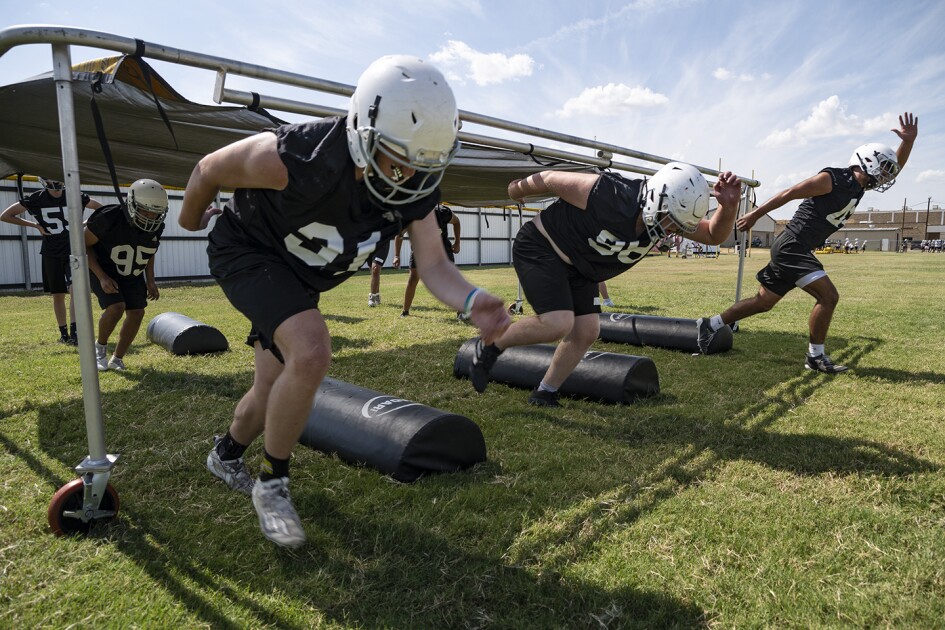We must look for ways to capture the public’s imagination on this, and have them feel it at the kitchen table.”
Members of Congress looked last year to the recommendations of a widely circulated report, “Rising Above the Gathering Storm,” for inspiration when they approved legislation that authorized a host of new federal programs in mathematics and science education.
But so far, lawmakers have not risen to the task of actually paying for those programs.
The disconnect between those math and science education proposals, signed into law by President Bush last summer, and federal officials’ inability to fund them was a central topic at a summit of corporate leaders, scientists, and a select group of lawmakers who met here last week.
The purpose of the meeting was to discuss what has or has not been accomplished in the 2½ years since the release of the congressionally chartered “Gathering Storm” report, in late 2005. That report warned that U.S. students’ apathy toward math and science, as well as the nation’s lack of federal investment in cutting-edge scientific research, posed a serious economic and national-security risk to the country.
For business and elected officials, the “Gathering Storm” report became a prime reference document. It also served directly as a blueprint for many of the math- and science-related education, research, and energy proposals included in the America COMPETES Act, which Congress overwhelmingly approved last summer. Mr. Bush signed it into law shortly afterward.
“We’re not on track—not by a long shot,” U.S. Rep. Rush Holt, D-N.J., told the attendees at the April 29 event, summing up the law’s impact so far.
“We must look for ways to capture the public’s imagination on this, and have them feel it at the kitchen table,” Mr. Holt said. If that can be done, he said, “Congress will follow.”
Funding Lags
The report was published by the National Academies, a nonpartisan advisory group of scientists chartered by Congress and the sponsor of the Washington event.
The America COMPETES Act calls for $43 billion in new spending across several agencies, according to congressional estimates. The bulk of that money is to be devoted to new research and development, but it also calls for about $840 million to go toward school and college math and science efforts, according to estimates of the House Committee on Science and Technology.
Those measures included the establishment and expansion of scholarships for new math and science teachers, as well as teacher-mentoring and -training programs.
After a protracted budget standoff between the president and Congress last year, most of those provisions were not included in the federal government’s final 2008 spending plan.
Their fate for fiscal 2009 remains unclear. Mr. Bush has proposed new spending on some, but not all, of the education priorities identified in America COMPETES, within the U.S. Department of Education and the National Science Foundation. He recommended $95 million, for instance, to create Math Now, a program to promote “research based” math programs in schools, and $70 million for training teachers to lead Advanced Placement and International Baccalaureate classes.
Some members of Congress have said they hope to include new math- and science-related funding in a supplemental fiscal 2008 spending measure for the Iraq war effort, though administration officials have resisted increasing the cost of that budget package.
Powering a New Sputnik
Part of last week’s conference focused on how to increase public understanding of what the speakers see as a troubling link between poor student achievement in math and science, lack of student interest in those subjects, and the nation’s future workforce and economy.
Craig R. Barrett, the chairman of the Intel Corp., was one of several speakers who pointed to demand for energy—specifically clean energy—as an obvious wake-up call for the public and students, given the issue’s potentially dramatic impact on the American economy and national security.
Energy will be “the Sputnik of the 21st century,” Mr. Barrett told the audience, referring to the Soviet Union’s launch in 1957 of an Earth-orbiting satellite, which stunned Americans. The dual challenges of climate change and rising demand for fuel underscore Americans’ need to nurture new scientists and a more scientifically literate society, he said.
“There is a softball that is teed up for someone to hit,” Mr. Barrett said, “and no one’s even got a bat in their hands.”
The weak skills of many math and science teachers and the link between uninspired teaching and lack of student interest in those subjects were also common concerns.
Francis M. “Skip” Fennell, whose term as president of the 100,000-member National Council of Teachers of Mathematics recently ended, drew a round of applause when he spoke of the potential of schools’ using “specialists” at the elementary level to teach math, as opposed to generalist teachers. Outside the event, Mr. Fennell said math specialists could work in many middle schools, too.
Using specialists could amount to “taking an old-time model and breaking it apart,” he explained. “Let’s create people who are ambassadors for the subject.”








